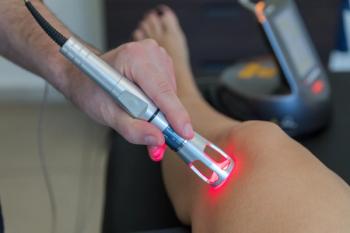
New Innovations That Could Change Dermatology
A session at Maui Derm Hawaii 2023 explored new therapies and devices that will impact the future of aesthetic and medical dermatology.
At Maui Derm Hawaii 2023, Rox Anderson, MD, FAAD, director of the Wellman Center for Photomedicine at Harvard Medical School in Boston, Massachusetts, highlighted the future of the dermatology field, as far as emerging therapies and technology in his session, “Innovations in Dermatology 2023: A Peek Into the Future.”
Anderson said one innovation is the use of genes, viruses and cells for skin treatment. “A tsunami is coming when it comes to using genes and cell-based therapies for skin treatment. I don’t know when it’s coming, but it’s coming,” he said. The messenger RNA-(MRNA) based vaccines for COVID-19 helped researchers find a way to use experimental immunotherapy to make chimeric antigen receptor (CAR) T cells; genetically engineered immune cells that can be redirected to kill specifically designed cell types.
There are currently 6 CAR T cells approved by the US Food and Drug Administration (FDA) to fight blood cancers, including lymphomas, some forms of leukemia, and multiple myeloma. Anderson said there are at least 30 more that are in various forms of development and the uses of those genetically modified cells will greatly expand to cover more than cancers.
Another evolving technology Anderson explored was clustered regularly interspaced short palindromic repeats (CRISPR), which are the hallmark of a bacterial defense system that forms the basis for CRISPR-Cas9 genome editing technology. They are of particular interest in dermatology because there are skin disorders, such as epidermal blistering disorders, that are considered ideal candidates for genome editing therapies. Anderson stated that skin disorders will continue to be the focus of new developments and clinical trials of CRISPR-Cas therapies.
Full-thickness coring needle devices are already in use by clinicians but will continue to grow in popularity, according to Anderson. They allow for grafting and removing skin laxity without a scar and faster wound closures by employing hollow coring needles that enable safe and effective small skin cores. They initiate a skin repair process through the formation of new collagen and elastin fibers, which results in skin rejuvenation. Anderson said he’s looking forward to seeing how these technologies will evolve and give patients safer and more effective treatment options, cosmetically and medically.
Reference
1. Anderson, Rox. Innovations in Dermatology 2023: A Peek Into the Future. Presented at Maui Derm Hawaii 2023 Conference; January 23-27, 2023; Maui, Hawaii
Newsletter
Like what you’re reading? Subscribe to Dermatology Times for weekly updates on therapies, innovations, and real-world practice tips.










